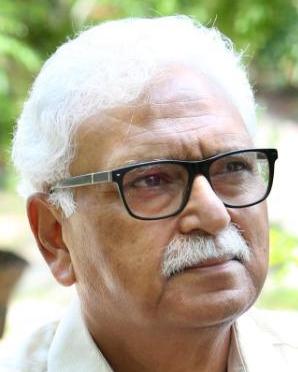

The Union Home Ministry has set up a committee, headed by Dr Ranbir Singh, Vice Chancellor of National Law University, to study and recommend amendments to the Indian Penal Code, the Criminal Procedure Code and the Evidence Act.
The committee in its aims and objectives has stated that : “The colonial foundations of our criminal law have long been a matter of concern in legal discourse. The fundamental principles of Indian Penal Code, Criminal Procedure Code and Indian Evidence Act continue to reflect state paternalism and Victorian morality of the colonial state”.
 The five-member committee has been asked to examine laws like criminalising marital rape, making sexual offences gender neutral, legalising euthanasia, honour killings, mob lynching and re-definition of the offence of sedition.
The five-member committee has been asked to examine laws like criminalising marital rape, making sexual offences gender neutral, legalising euthanasia, honour killings, mob lynching and re-definition of the offence of sedition.
It would also examine and recommend on altering the minimum age of criminal responsibility to commit an offence. The law was amended in 2015 to treat a juvenile above the age of 16 years as an adult as far as heinous crimes were concerned.
The constitution of the committee, however, has come under criticism on various grounds including its composition, methodology and time-frame. Legal reforms come under the mandate of the Union Law ministry which sets up commissions to recommend reforms.
The members of such commissions include domain experts, retired judges, lawyers and government officials. Its report is studied by the law ministry and then presented to Parliament. It is perhaps for the first time that a University has been given the charge to make recommendations and that too within a period of six months.
 The Bar Council of India has taken objection to the almost complete exclusion of lawyers from the committee.
The Bar Council of India has taken objection to the almost complete exclusion of lawyers from the committee.
Several senior lawyers and retired judges have also raised concern over the composition of the committee and for the lack of clarity on the objectives of the exercise.
Women lawyers too have objected to lack of representation for them when it has been asked to examine laws embedded in patriarchal traditions of the country. Similarly lack of representation to minorities and marginalised sections of the society has come under criticism.
There is, however, no doubt that several archaic laws need to be either scrapped or be reviewed in modern context.
Most of these laws were enacted by the British and were aimed to protect the imperial power and to subjugate the Indians and, in particular, their struggle for freedom. Unfortunately several of these laws continue to be valid even after over 70 years of independence. Some amendments have no doubt been made and some laws have been scrapped but thorough reforms in several existing laws are long due.
Many of these pertain to critical issues concerning individual freedom and rights, sedition, criminality, gender issues and huge powers vested with the authorities.
The demand for scrapping such laws is decades old and Malimath committee set up by former Union Home Minister Lal Krishna Advani had first recommended several changes to the IPC and the CrPC. However the governments have been reluctant to undertake any drastic changes.
The initiative taken by the current government is therefore welcome, also for fixing a firm deadline for the committee to give its report.
 The general practise had been to set up law commissions which kept on getting extensions and tool several years to come up with recommendations. Then the consideration of such recommendations would consume a lot of time and finally only minor changes would be accepted.
The general practise had been to set up law commissions which kept on getting extensions and tool several years to come up with recommendations. Then the consideration of such recommendations would consume a lot of time and finally only minor changes would be accepted.
But there are also apprehensions that the committee may recommend dilution of procedural safeguards of individuals in the name of security. It is also feared that the committee would do little to rein in police and other law enforcing agencies.
To allay such doubts, the committee must broaden its ambit and hold open discussions and debates on the reforms being considered by it. Some of the outdated laws like those relating to sedition, contempt of courts and criminal defamation must be amended to uphold values of democracy so cherished by the citizens of the country.

Disclaimer : PunjabTodayTV.com and other platforms of the Punjab Today group strive to include views and opinions from across the entire spectrum, but by no means do we agree with everything we publish. Our efforts and editorial choices consistently underscore our authors’ right to the freedom of speech. However, it should be clear to all readers that individual authors are responsible for the information, ideas or opinions in their articles, and very often, these do not reflect the views of PunjabTodayTV.com or other platforms of the group. Punjab Today does not assume any responsibility or liability for the views of authors whose work appears here.
Punjab Today believes in serious, engaging, narrative journalism at a time when mainstream media houses seem to have given up on long-form writing and news television has blurred or altogether erased the lines between news and slapstick entertainment. We at Punjab Today believe that readers such as yourself appreciate cerebral journalism, and would like you to hold us against the best international industry standards. Brickbats are welcome even more than bouquets, though an occasional pat on the back is always encouraging. Good journalism can be a lifeline in these uncertain times worldwide. You can support us in myriad ways. To begin with, by spreading word about us and forwarding this reportage. Stay engaged.
— Team PT


Copyright © Punjab Today TV : All right Reserve 2016 - 2026 |